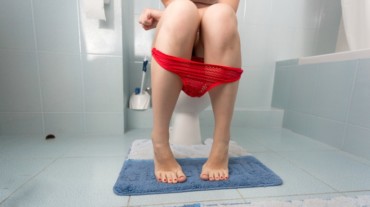Chat with ![]()

Chat with ![]()


Many believe that bladder infection is acquired through contact but this is actually not true at all. Might come across as a surprise to many but the primary causes are retention of urine or dehydration. So, if you’re holding in your urine for long periods of time or are not consuming enough water, you’re actually putting yourself at risk of developing an infection.
Usually, urine is a sterile medium and the bladder does not have any bacteria. The bladder gets colonised by bacteria, causing a local reaction of swelling and the inflammation of the bladder’s inner wall. One can be prone to bladder infections if the body’s immunity, which is its fighting power, is subdued. This is more common in pregnancy, old age and diabetic patients. Occasionally, it can happen due to bad personal hygiene, sexual intercourse (honeymoon cystitis), catheterisation of the bladder or instrumentation of the genital organs.
With the onset of summer and temperatures soaring, dehydration is likely to be the key reason behind a painful UTI. When we consume very little water, the urine output is also very little and this causes bacteria build-up. Hence, drinking 6 to 8 glasses of water flushes out toxins from the body.

From long working hours and considerable travel distances to being fussy about not using a public toilet, there could be multiple reasons you hold in your pee. However, holding in your pee for a long time leads to the multiplication of bacteria which can ultimately lead to an infection. It’s important to drink water through the day and not hold the bladder for more than 6 hours at a stretch.
Body-hugging and tight clothes, especially during the summers, are to be avoided under all situations! Tight undergarments, thongs, pants and even tight workout outfits don’t allow the vagina to breathe and hence, provide a conducive environment for bacterial growth.
UTIs are extremely common during pregnancy as the growing foetus can put pressure on the bladder and the urinary tract. Women are more susceptible to UTIs during and after childbirth. In such cases, the doctor should be informed so that proper care is provided.
After the first intercourse, some women can end up with an infection. You can prevent it by emptying your bladder immediately after intercourse and drinking a lot of water. Being alert about signs suggestive of infection like a burning sensation while passing urine, frequent urination or pain in the lower part of the tummy can ensure you seek timely medical help. The first thing you should do is drink water to flush out the infection but if it doesn’t get better, you may require antibiotics. It’s not advisable to ignore the infection. One should always get treated before it turns into something more serious.
Vaginal skin becomes relatively thin due to lack of estrogen in menopausal women. The female urethra is in close proximity to the vagina which makes women more vulnerable to UTIs.


Unfortunately, women are more prone to UTIs than men due to the proximity of their urinary system to their genital organs. Women also have a shorter urethra, making it easier for bacteria to travel up the bladder. The genital organ skin and bladder skin are sensitive to female hormones. So, particularly after menopause, the lack of hormones will make postmenopausal women vulnerable to bladder infections.
In order to reduce the occurrence of a UTI, you can inculcate certain habits like:
If you are suffering from an infection, here are a few things you can do right at home:

You need to be extremely vigilant if you’ve been experiencing recurrent UTIs. Specialist treatment is needed in cases where a person has been diagnosed with 2 to 3 infections in just 6 months.
The routine tests performed are urine microscopic examination, urine culture and sensitivity. These will be able to identify the type of bacteria causing the UTI and enable your doctor to prescribe effective antibiotics to clear the infection. The sonography of the kidney and bladder may be needed to look for after-effects of the UTI.
With some care and vigilance, a bladder infection can be taken care of but it is important to seek timely medical intervention.